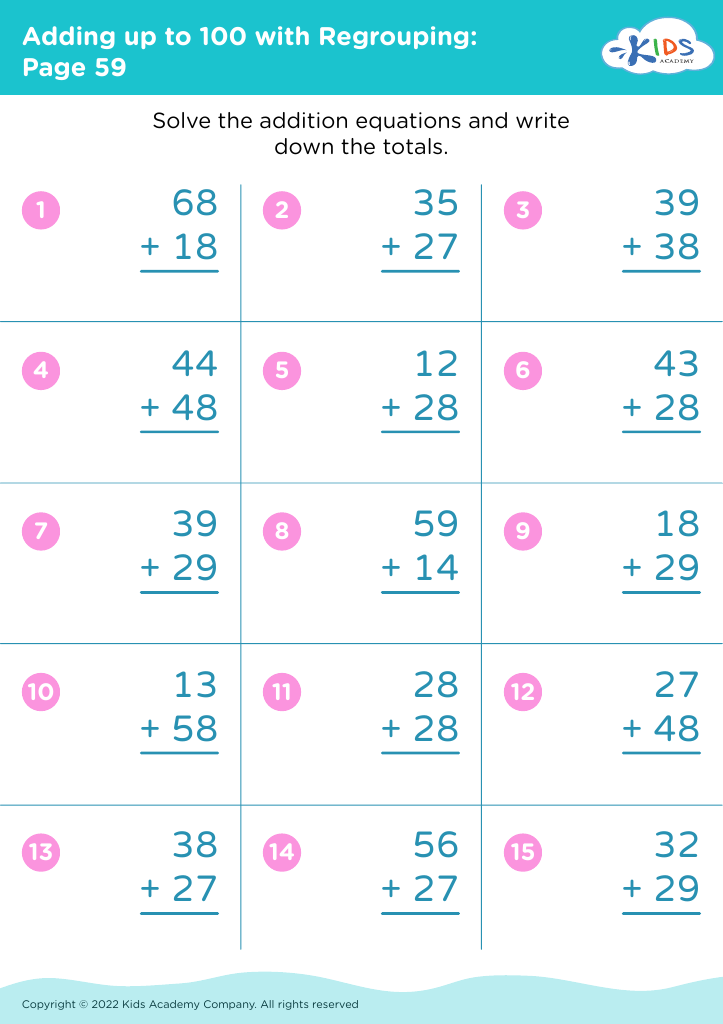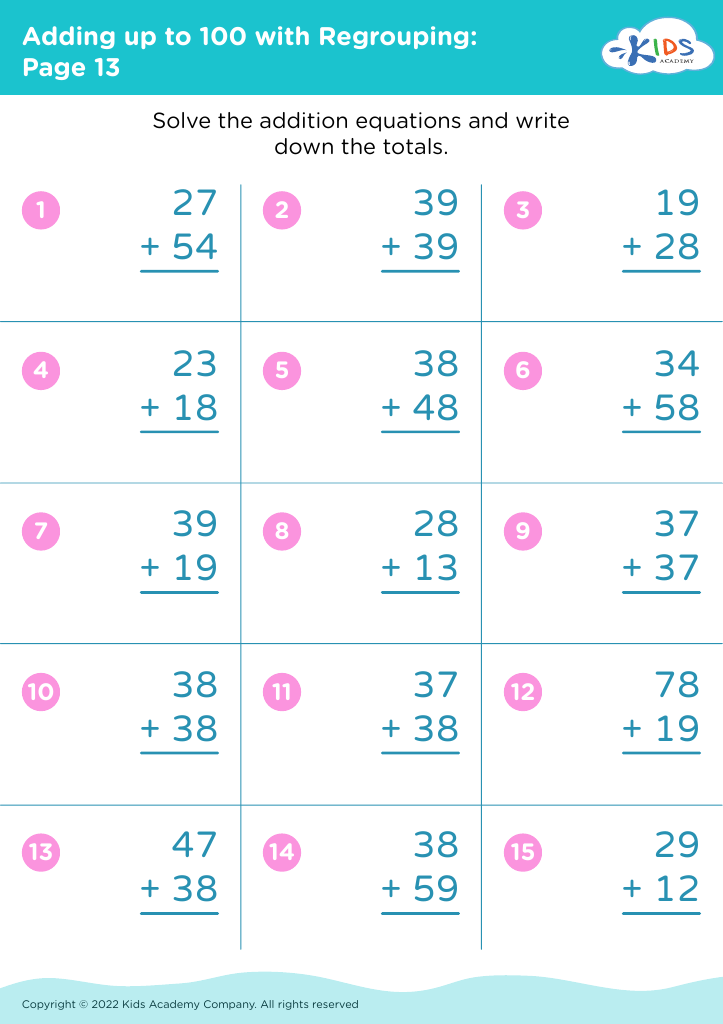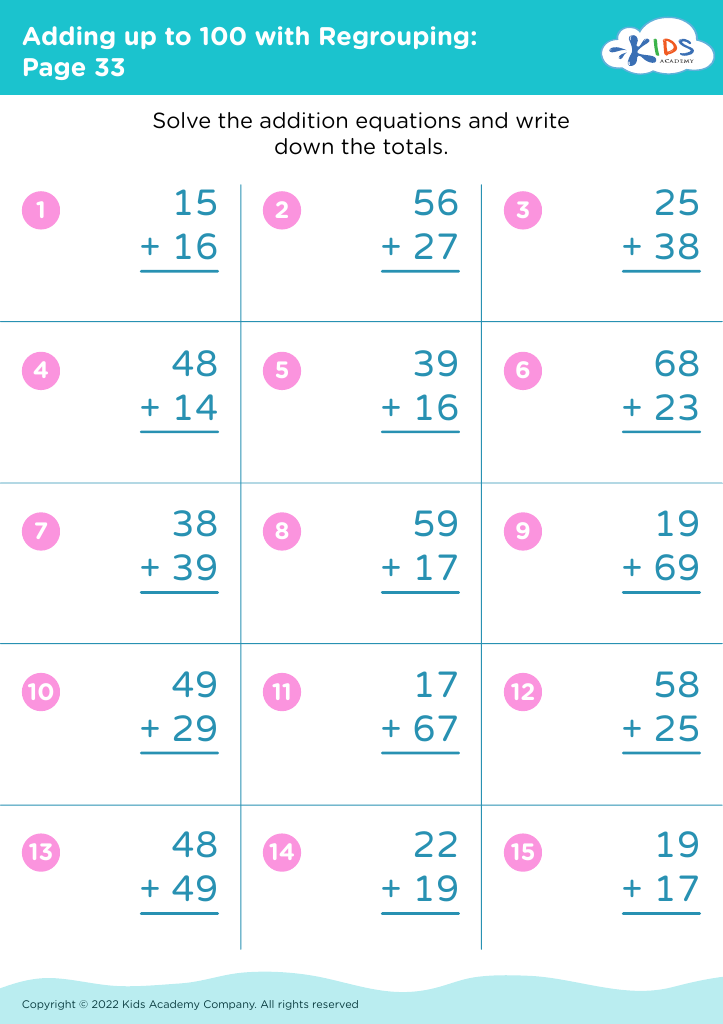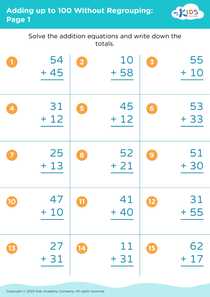Comparing Fractions Adding up to 100 with Regrouping Worksheets for Ages 5-7
9 filtered results
-
From - To
Introduce your young learners to the fascinating world of fractions with our "Comparing Fractions Adding up to 100 with Regrouping Worksheets." Tailored for ages 5-7, these engaging worksheets help students compare fractions and learn essential regrouping skills. Through colorful visuals and fun exercises, kids develop a solid understanding of fractions and number manipulation. Designed to align with educational standards, these worksheets are perfect for both classroom and home practice, ensuring foundational math skills are effectively reinforced. Make learning fractions enjoyable and accessible, nurturing your child's math confidence and proficiency right from the start.
Parents and teachers of children aged 5-7 should care about teaching the concept of comparing fractions adding up to 100 with regrouping because it lays a crucial foundation for mathematical understanding and problem-solving skills. At this age, children are developing their numeracy abilities; introducing them to fractions and basic regrouping enhances their comfort with numbers and operations.
Comparing fractions helps students grasp the notion of parts of a whole, which is essential for more advanced math, including division and proportional reasoning. By integrating regrouping (or carrying) into these exercises, children learn to handle numbers beyond what simple counting allows, improving their mental math and arithmetic skills. Additionally, these activities improve logical reasoning and critical thinking, as students need to understand the relationships between different fractions and how they can be combined to reach a total, such as 100.
Furthermore, these skills extend beyond math class. Understanding fractions and regrouping aids in everyday tasks like cooking, shopping, and dividing shared resources. Early mastery can boost students' confidence and foster a positive attitude toward math, making them more likely to succeed in future academic endeavors. Educators and parents who emphasize these concepts position children for long-term success in math and in real-life applications.
























